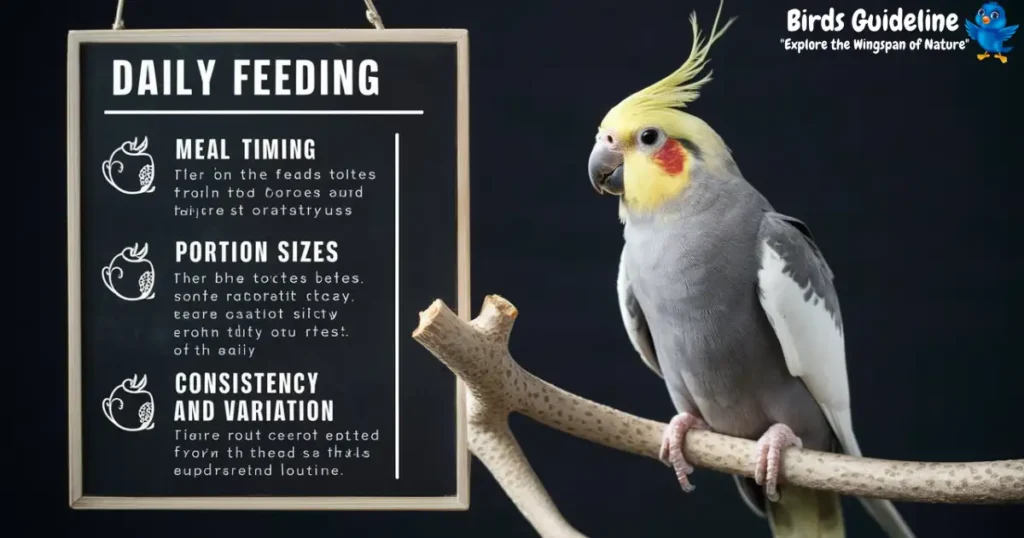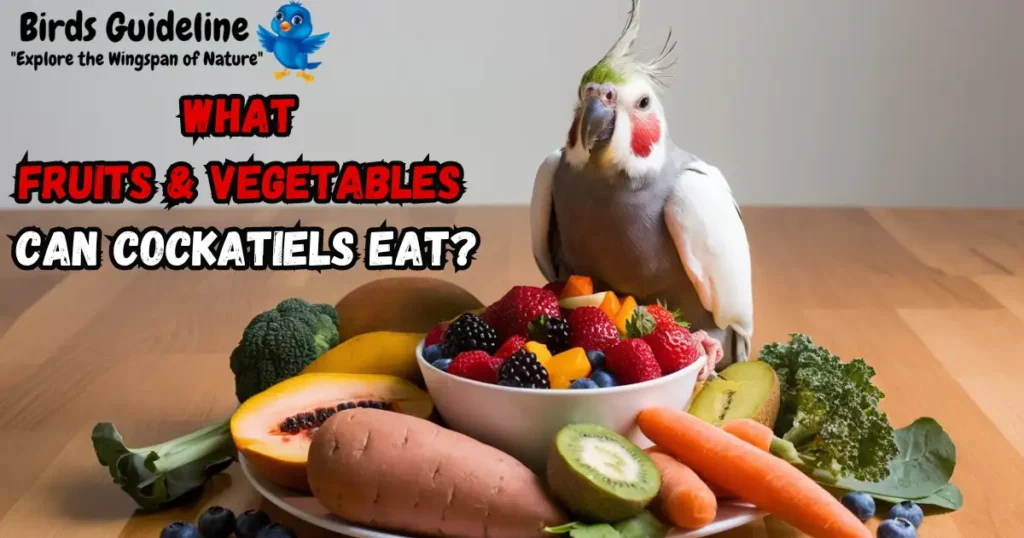Yes, cockatiels can eat rice. It should be cooked and cooled before serving.
Cockatiels, charming and popular pets known for their lively personalities, require a balanced diet to maintain their health and happiness. Rice, a staple food for many around the world, can also be a nutritious part of a cockatiel’s diet. Offering cooked rice to your feathered friend provides them with essential nutrients and adds variety to their meal routine.
It’s crucial, however, to make sure the rice is plain and free from any spices, salt, or additives that could harm your bird. Integrating rice into their diet alongside a mix of fruits, vegetables, and specialized bird feed helps your cockatiel gets all the necessary nutrients. By doing so, you contribute to their overall well-being, supporting their energy levels and colorful plumage.
Nutritional Value Of Rice
Cockatiels can safely enjoy rice as part of a balanced diet. Rice comes packed with energy-providing carbohydrates and essential nutrients. It’s a versatile grain that offers a variety of nutritional benefits, making it a wholesome choice for these feathered friends. Let’s examine the nutritional value of rice and how it can contribute to a cockatiel’s health.
Types Of Rice
Rice, one of the most consumed grains worldwide, offers diverse types with unique nutritional profiles. Cockatiels can eat different kinds of rice, but some are healthier than others. Here’s a look at the common varieties:
- Brown Rice – A whole grain with a nutritious bran layer, retaining its natural nutrients.
- White Rice (long-grain and short-grain) – Milled and polished, removing the bran and most nutrients.
- Arborio Rice – Often used in risotto, it has a high starch content.
- Black Rice – Also known as forbidden rice, packed with antioxidants.
- Basmati Rice – Aromatic and long-grain, commonly used in Indian cuisine.
- Jasmine Rice – A fragrant, long-grain variety popular in Southeast Asian dishes.
- Sticky Rice – Glutinous rice that sticks together when cooked.
For cockatiels, brown rice is the most nutritious option. It’s unrefined, keeping its vitamins and minerals intact. On the other hand, white rice is lower in nutrients due to processing but is still safe for cockatiels in moderation. Let’s compare the nutritional values in a table:
| Type of Rice | Calories | Protein | Fiber | Carbohydrates |
|---|---|---|---|---|
| Brown Rice | 111 | 2.6g | 1.8g | 23g |
| White Rice | 130 | 2.7g | 0.4g | 28g |
| Black Rice | 160 | 5g | 3g | 34g |
Vitamins And Minerals
Rice is not just about carbs; it also provides essential vitamins and minerals for overall health. Brown rice, for instance, is a great source of vitamins like B6 and minerals such as magnesium, phosphorus, and selenium. These nutrients support a cockatiel’s body functions, from energy metabolism to bone health. Here’s a breakdown of the nutritional content:
- Vitamin B6 – Aids in metabolism and promotes a healthy nervous system.
- Magnesium – Essential for muscle and nerve function and bone health.
- Phosphorus – Works with calcium to build strong bones and teeth.
- Selenium – An antioxidant that helps protect the body from damage.
While white rice has fewer nutrients due to its processing, it is often fortified with vitamins like folic acid. It’s essential to offer rice as a part of a varied diet. Always make sure cockatiels have access to their main diet of seeds and pellets, supplemented by healthy grains like rice. Here’s a simple chart to show the vitamin and mineral content in a 100g serving of brown rice:
| Nutrient | Amount |
|---|---|
| Vitamin B6 | 0.3 mg |
| Magnesium | 79 mg |
| Phosphorus | 208 mg |
| Selenium | 19.1 µg |
Rice In A Cockatiel’s Diet
Many cockatiel owners often wonder what foods are safe for their feathered friends. A common question is whether cockatiels can eat rice. The answer is yes, rice can be a nutritious addition to a cockatiel’s diet. It is important to understand how to serve it properly and recognize both the benefits and potential risks involved.
Benefits Of Rice
When cooked, rice is a fantastic source of energy for cockatiels due to its high carbohydrate content. It is easy to digest and can be a good way to add variety to their diet. Here are some key benefits:
- Packed with vitamins: Contains essential B vitamins that help in maintaining a healthy metabolism.
- Minerals: Provides essential minerals like selenium and manganese.
- Protein: Offers a small amount of protein, which is crucial for feather health.
It’s also low in fat, which is ideal for maintaining a healthy weight. Let’s look at the nutritional value of rice in a simple table:
| Nutrient | Benefit |
|---|---|
| Carbohydrates | Energy source |
| B Vitamins | Metabolism support |
| Minerals | Overall health |
| Protein | Feather and muscle health |
Potential Risks
Though rice has its benefits, there are some risks to consider. Uncooked rice, for instance, is hard to digest and can cause digestive issues. Cockatiels might also fill up on rice and miss out on more nutrient-dense foods. Here are potential risks to be aware of:
- Choking hazard: Uncooked rice grains can be a choking risk.
- Nutritional imbalance: Too much rice can lead to a lack of essential nutrients.
- Pesticides: Non-organic rice may contain harmful chemicals.
Always make sure rice is served in moderation and as part of a balanced diet. Observe your cockatiel for any signs of allergic reactions or digestive issues.
Cooking Rice For Cockatiels
Cooking rice for your cockatiel is simple, but it’s essential to do it safely. Always opt for plain, white or brown rice and avoid any added spices or salt. Here’s a quick guide:
- Rinse well: This removes excess starch and potential contaminants.
- Boil: Use plain water without any additives.
- Cool: Make sure the rice is at room temperature before serving.
Remember, cooked rice should only be a small part of your cockatiel’s overall diet. Offer it alongside a variety of fruits, vegetables, and specialized cockatiel seed mixes for optimal health.
Signs Of Rice Intolerance
Many people wonder if cockatiels can eat rice. The answer is yes, cockatiels can safely eat both cooked and uncooked rice. However, like humans, some cockatiels may show signs of rice intolerance. Recognizing these signs early can help protect the well-being of your feathered friend.
Digestive Issues
Rice intolerance in cockatiels might lead to noticeable digestive issues. Here are key signs:
- Loose stools: A sudden change in droppings consistency.
- Reduced appetite: Your bird might eat less than usual.
- Vomiting: Rare but possible sign of intolerance.
Understanding these symptoms can help in early detection and dietary adjustments. It’s crucial to monitor your pet’s reaction to new foods like rice. If you notice any of these signs, consider consulting with a vet and revising their diet.
Behavioral Changes
Besides digestive issues, rice intolerance can cause behavioral changes in cockatiels. Look out for:
- Lethargy: Less energy or interest in activities.
- Aggression: Sudden aggressive behavior can be a sign.
- Feather plucking: Stress from intolerance might lead to this.
These changes might seem small but are important indicators of your bird’s health. Always keep a close eye on your cockatiel’s behavior after introducing new foods. Adjustments in diet, based on observed reactions, are key to a happy and healthy bird.
Alternatives To Rice
Cockatiels can enjoy a variety of foods, including rice. But what if you want to spice up their diet with different options? Alternatives to rice are numerous and can offer your feathery friend a bounty of nutrients. Let’s look at some safe and nutritious choices that will keep your cockatiel chirpy and healthy.
Cooked Grains
Cooked grains are a fantastic substitute for rice. They’re full of essential vitamins and minerals. Here’s a list of grains that are safe and beneficial:
- Quinoa – A protein-packed grain that’s also high in fiber.
- Barley – Great for digestion and packed with nutrients.
- Oats – Serve them cooked for a comforting treat.
Vegetables
Veggies are a powerhouse of nutrition for cockatiels. They offer vitamins and can be very refreshing. Consider these vegetables:
- Carrots – High in vitamin A and loved by birds for their crunchy texture.
- Broccoli – It’s full of vitamin C and K, perfect for your cockatiel’s health.
- Peas – These are a fun, poppable snack that’s also filled with vitamins.
Fruits
Fruits can be a sweet treat for cockatiels, offering natural sugars and vitamins. Here are some safe fruits:
- Apples – Make sure they are seedless, as seeds can be toxic.
- Bananas – Easy to digest and high in potassium.
- Berries – Full of antioxidants and very hydrating.
Legumes
Legumes are an excellent source of protein and other nutrients. Include these in your cockatiel’s diet:
- Lentils – Serve them cooked and they can be a nutritious staple.
- Chickpeas – Also serve cooked, they’re high in protein and fiber.
- Beans – Make sure they are thoroughly cooked to avoid toxins.
Pellets
Pellets are a balanced diet for cockatiels, designed to meet all their nutritional needs. Here’s why they are a good option:
- Complete Nutrition – They contain all the necessary nutrients in the right proportions.
- Easy to Serve – No preparation needed, just add them to the feeding bowl.
- Less Waste – Pellets reduce the chance of food scattering and waste.
Frequently Asked Questions
Yes, it’s safe to feed birds cooked rice. Make sure it’s cooled and free from any added salt, spices, or oils.
Cockatiels can safely eat grains like millet, quinoa, brown rice, and oats. These grains provide essential nutrients for a balanced diet.
Cooked rice can be a healthy part of a parrot’s diet in moderation. Make sure it’s plain and fully cooked before serving.
Conclusion
To sum up, rice is a safe and nutritious treat for your cockatiel. Always offer it cooked and in moderation to maintain a balanced diet. Remember to avoid seasonings and keep it plain. By doing so, you’ll keep your feathered friend happy, healthy, and full of energy.
Enjoy sharing this simple grain with your pet!


